One of the main questions I get asked is how I travel and see so much? What’s my budget? How long did I save for? Or, what tips can I give to help you travel on a budget?! So, do you want to travel longer and get the most value for your money? Let’s talk budget.

My Personal Experience
Well, firstly it’s important to understand my circumstances last year. I took a redundancy payment package from my career in Finance, April 2018. So, I was paid a full year’s wage upfront, for leaving the role the company no longer required. (and no I’m not going to tell you how much I was paid!)
I did not however want to spend all of it. That money also needed to be used for mortgage repayments, bills etc back in Australia. I wanted to be smart about how I spent it but I also wanted to travel. LOTS.

I’ve since travelled for 6 months in South East Asia and 3 months in the United States and am currently planning my next adventure at the end of 2019.
Thankfully due to my 13-year banking career, I was able to create a budget that has allowed me to travel a lot and work very little in the past 17 months.
From The Banker
First and foremost I opened a couple of new bank accounts and put enough money in them to cover my mortgage repayments, bills and other financial commitments back home.
I still had to pay council rates and electricity and water for the house sitter etc. I paid my car registration and insurance 12 months in advance. For more details about exactly what I did before my big Asian adventure check out this more detailed post

I wanted my 6 months of travel in Asia to be as financially stress-free as possible. Knowing everything back home was looked after, allowed me to do that. It also allowed me to travel longer because I had originally only planned to travel for 3 months. Sitting down, researching and preparing my travel budget made me realise I could travel longer. 3 months longer!
Preparation is key. And it will be for you too.
Do Your Research
The reason I chose Asia, was because I knew I could travel for longer on less money. I could also travel overland to a lot of the countries, therefore, reducing the need for a tonne of flights.
I started reading blogs about how to travel cheaply, how to travel on $50 a day, how little I could travel on in Asia and so on. However, due to my particular situation, I knew I didn’t have to be that frugal. Some posts claimed $50 a day some as little as $30 a day.
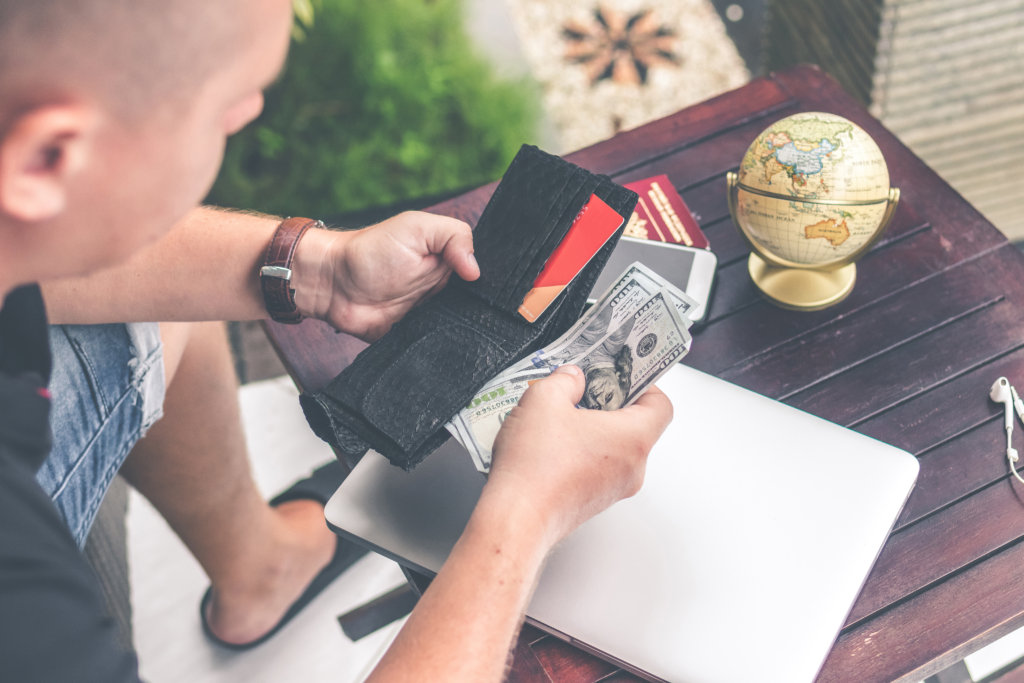
Read blogs from @bemytravelmuse and @nomadicmatt for how they travel on so little.
I also didn’t want to be completely ridiculous and blow a whole lot of money either.
Understand The Region
That is an important tactic to know when you are planning holidays or to travel. It’s knowing the costs associated with the country or region and aligning them to your budget.

If you have a small budget your destination should be a cheaper one, so you can stretch your money further, for longer. If you must go to a country that is known to be expensive you’ll have to consider the fact your money won’t stretch and you’ll be looking at a short holiday in lieu of actual long term travel.
Pre-Travel Expenses, Before You Even Leave
There are going to be a lot of pre-travel expenses that you need to take into account before your trip begins.
Your flight. This is a big upfront expense.
Travel insurance. An absolute must. You can’t afford to travel without it.
Vaccinations. You only want to come home with photos and memories, not some mosquito-spread virus or flesh-eating bacteria…gross.

Your rucksack. This is a long term investment. For the sake of your back, neck and shoulders you will need to at least be spending a couple of hundred dollars on a quality pack.
Passport. Do you have one? Is it up to date? Most countries need you to have at least 6 months left before expiry to let you into their country.

Entry Visa’s. Whilst most visas are nominal amounts of money, $20 for example, some can be very expensive. Brazil cost me $200, just to enter.
Understanding Your Travel Style and Budget
I am what you would consider a low to medium budget traveller.
It’s important to understand what sort of traveller you are to understand what sort of budget you can stick to. Plus how much money you are going to need to save.

In terms of saving for a trip: Work out how long you are going to travel for, which country or continent you’ll visit, your travel style and your daily budget.
Then add 20% savings on top of that as your contingency plan. There are always going to be things that happen on the road. Things that you didn’t take into account, unforeseen expenses. So it’s good to have an added buffer for emergencies.
Adjust Your Style If Needed
It might be worth considering becoming a different kind of traveller. If you haven’t been able to save what you’d hoped for, or if you want to travel for longer than first planned, maybe you don’t need all the luxuries you’re used to.
Me? Well, I’m all about getting involved with the locals, experiencing the culture as they do, as well as seeing a few of the “touristy” attractions. I’m not one for big nights out, shopping all day or lazing on a beach or by the pool. I like to be active, out and about seeing things. Even if it just involves a massive walk around a local neighbourhood. (which, *hint, hint* is totally free)
Cutting on Accommodation
As I mentioned, I’m all about the experiences, I’m not overly concerned about the accommodation, whether it has a pool or a bathrobe. I just need somewhere to dump my bags and lay my head and I’m pretty happy with that.
But it is something that is going to consume a lot of your travel budget. So think long and hard about what necessities you really need and can live without.
Hostels, Are Where It’s At
As I do travel solo a lot, I like to mix up the room styles I use. Mixing between dorm rooms and private rooms in hostels. Sometimes a girl just needs a little space and privacy, you know!!
Private rooms can come with an en suite or shared bathroom which affects the price too. Check out the app Hostel World. They’re great!

Hostels are also a great way to meet fellow travellers, whether it be in the dorm room or the common area. I’ve met so many people that I still call friends to this day from sharing a dorm room. It is pot luck who you get, obviously, but it’s what you make of the situation.
They’re also an awesome way to pick up hints and tips on destinations, transportation or even a travel buddy around the local destination or for the next leg of your journey.
Open Yourself Up To Meeting People
I’ve explored Colombo, Sri Lanka, with Jesse from the Netherlands, I’ve been on island hopping cruises off the coast of Cambodia with 4 English dorm mates, I went to a Hindu Holy Festival in Jaffa, Sri Lanka, with Marte from Spain, (My hostel in Jaffa cost $5aud a night by the way…! )I’ve celebrated the 4th of July in Los Angeles with Kun from China and the list goes on.
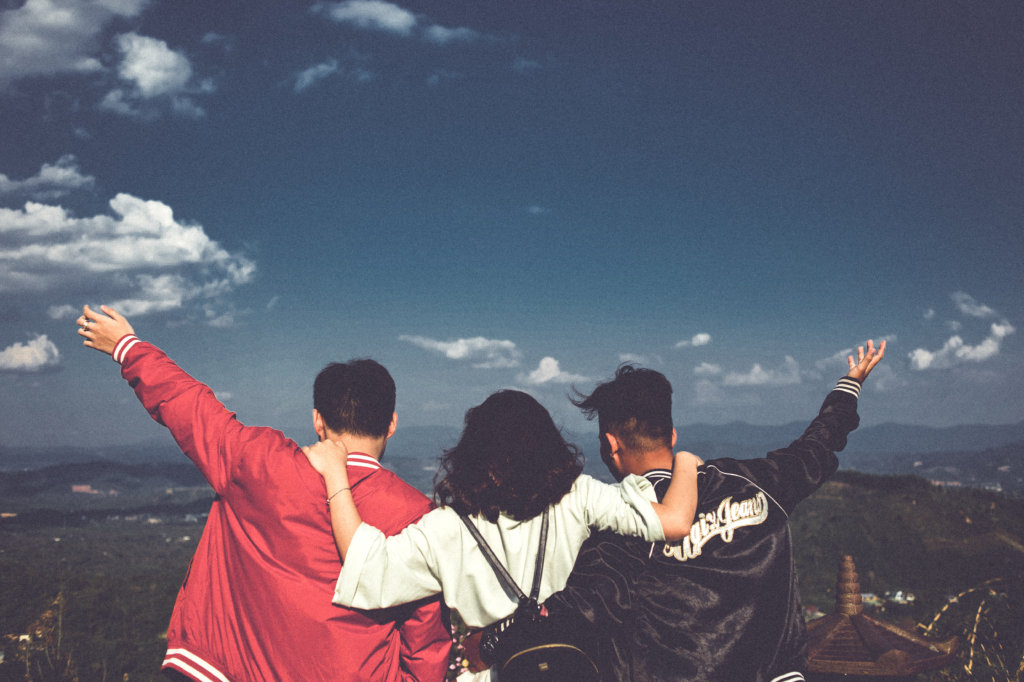
It’s such a fabulous (and CHEAP) way to accommodate yourself overnight and to make some awesome memories with awesome people.
Unless they are small family-run operations, I tend not to stay in hotels. I like to support the local economy in that respect.
For me, hotels can be quite sterile and not conducive to meeting other travellers. Unless you’re feeling especially extroverted. I don’t really consider them as part of my travel budget.

It’s All About Experiences
I will spend more on activities because that’s most important to me. Whether it be a guided tour, a cooking class, snorkelling or a boat cruise. Whatever it may be, that’s where I want most of my money to go.

You are going to remember that more, than a hotel room. Trust me.
There are tonnes of activities that you can also do for free and still get a feel for, and experience, what a place is all about.
Things to do cheaply or freely
Hike in a National Park, walk around the city centre, admire the local architecture, sit at a cafe and just people watch, walk/sit/swim at the beach, do a self-guided walking tour or a free one put on by a local.

Check out the hostel notice boards or Airbnb Experiences for different cheap or free options. Atlantis Audio Tours (app), GPSmyCity (app) and Free Tours by Foot are great for city walks with lots of great information
Your Food, Eating Out and Booze Budget
Eating is another area you can really save on.
A lot of you out there may think, I’m on holiday I deserve a treat, and occasionally you absolutely do. But there is no need to be eating extravagantly every day.
Street Food
Depending on where you are travelling, eating can be super cheap, especially if you stick to the local cuisine and street food.
I ate one night at the Jonker Street, Night Market in Malacca, Malaysia for $5 and I ate sooooo much street food. The flavours are out of this world too and you get so much for your money.
Avoid These Restaurants
Avoid going to tourist targeted restaurants serving western food, especially in Asia. One, they’re overpriced and two the food is rubbish. It’s the Asian version of western food, so really underwhelming, bland and NEVER like you’d get back at home.
If you really don’t want to try street food, also avoid restaurants that are right next to a tourist hot spot. For example Times Square. If you want to get a huge New York Slice of pepperoni pizza, you’re going to pay 3 times as much in Times Square than if you visit a little vendor or restaurant in a quieter part of the city.

Stick to local cuisine that is rich in flavours, spices and tradition, as much as you can. It’s made with heart and quite often has developed from interesting history. You didn’t travel all that way to eat as you do back home.
The best way to choose a great street food stall is to go where all the locals are. The busier the better. It means it’s good, the food will be fresh and cooked well.
If you’re worried about getting sick, don’t be. It can happen eating at a normal restaurant. In six months I got ill from food once and that was eating food from a restaurant. Never street food.
Go To The Local Supermarket
Another great tip I swear by is to book accommodation that has breakfast included. Or at the very least a mini-fridge so you can purchase fruit and yogurt from the supermarket. Or better yet an Airbnb with a kitchen.

I quite often purchase some muesli or oatmeal, that I keep in a Ziploc bag and carry around in my rucksack. Then I just need to purchase a small milk, yogurt and a banana and that’s my breakfast. Super easy, really cheap and a nice alternative when you get sick of the white bread and jam combo, hostels tend to put out.

Whilst travelling around America on road trips, I purchased a cooler bag and filled it with bread, fruit, muesli bars, crackers, muffins and other goodies. (I also took a tube of Vegemite with me from Australia! I’m Aussie, I can’t live without it)
It’s so much easier and cheaper to pull off to the side of the road make a sandwich and have a little picnic, than trying to find somewhere to eat and spending lots of money every lunchtime.
Reconsider Booze…..
Whilst booze can be cheap in South East Asia and a great way to loosen up and meet people, I wouldn’t advise going crazy.
Unless this is the exact reason you are going travelling, to party! Then sure, knock yourself out and your budget too. Hey! No judgement at all. I drank my way around Europe for 3 months when I was 21 and had an epic time doing it. No regrets!

However, if you are wanting long term travel, seeing sunrises and making the most of every day, making your budget stretch further and also not wasting time being hungover in bed. My advice is to keep this to a low limit or none at all.
I can count the times I had a few drinks, on one hand, the entire six months I was in Asia and only once in three months in America.
Airbnbs
Airbnbs are a great option for a short stay or every other week if you’re a long term traveller.
They provide complete and utter privacy. Which is fab for a break from hosteling for a few nights. A kitchen so you can go grocery shopping and cook your own meals. Plus the added bonus, if you can get one with a washing machine, you can do your laundry for free, too!

If you feel up for it stay in one with the host. Another great way to meet a local. You have someone to talk to, (if you’re solo) and you get the added advantage of having a local tour guide if they have the time to show you around. Or at the very least true local advice to go out and explore on your own.
Mix It Up With The Locals
Another added benefit is they are in the local neighbourhoods, so you have much more chance of meeting and interacting with the locals, on a larger scale.

I stayed at an awesome Airbnb in Saigon on the 5th floor of an apartment building. It was right down the hall from a primary school. The looks on the kids’ faces when I got home each afternoon was priceless and they all wanted to practice their English with me.
Use Local Transport
It’s so damn cheap and easy to use. I don’t know why you wouldn’t! I always travel on local transport.
The bus drivers I’ve found to be very helpful. Travelling throughout Asia, I would just tell them the name of the town I wanted to travel to, or the landmark in a city and they would let me know when it was time to get off.
If the driver can’t help, have a chat with the person next to you, they’ve always been very warm and helpful to me.

It also, again, gives you a true taste of the town/country you’re visiting and how the locals travel. Instead of splashing out on cabs, Ubers or travelling by coach, jump on a local bus or train and experience the journey not just the destination.

I travelled through South East Asia, India and Sri Lanka, Nepal and Myanmar entirely by local trains, buses and rickshaws. It was so cheap and an absolute blast. The characters I met!
Setting a Daily Budget
This is so important to do before you leave. It may require fine-tuning once you hit the road and you get a feel for how much everything costs. That’s okay. In the beginning, for savings and budgeting purposes you’ll need to set a daily spend limit.
But How…?
I work out where I am travelling and base my expenses on how expensive the country/continent is.
For example; travelling in SE Asia you could go as low as $30-$50 Aud per day, if not lower. My budget was a little more abundant. I allowed myself upward of $100 per day but tried my best to keep that low.
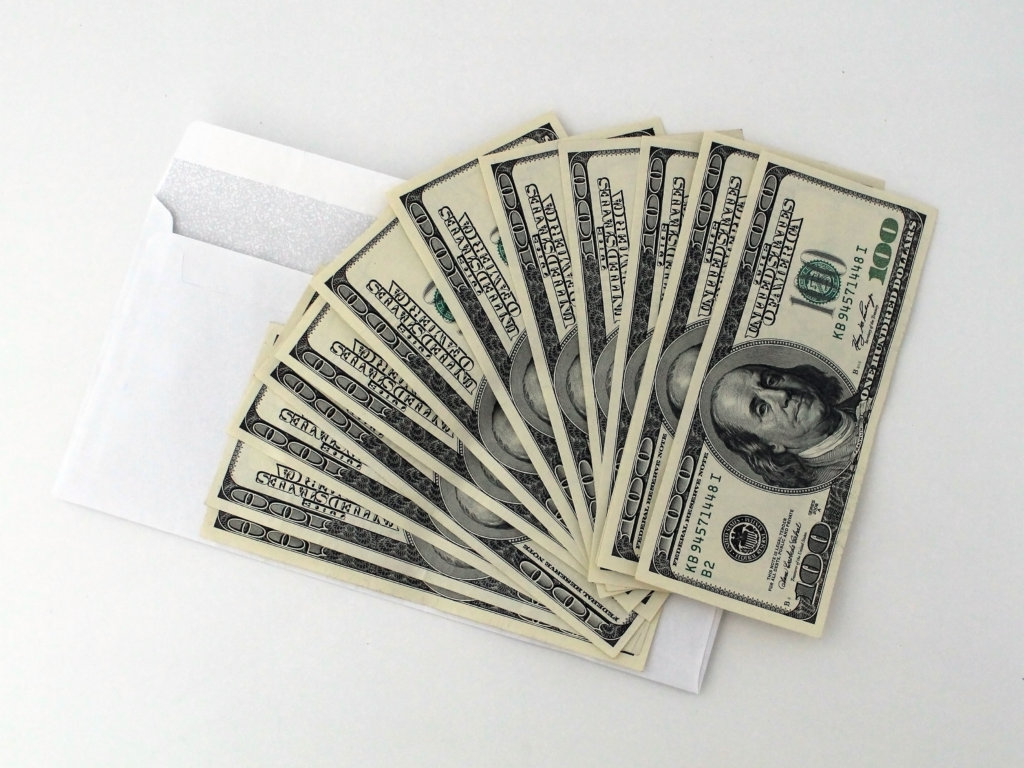
My absolute maximum per night on accommodation was a $20 limit and then a $50-$80 “everything” else limits.
I worked this out by reading other traveller’s blogs, looking on the hostel world app and booking.com, deciding roughly what activities I might like to participate in and so forth.
Total Travel Budget For Asia
Before leaving Australia I budgeted approximately $15k with a $5k contingency buffer for the 6 months in Asia. I pretty well stuck to that and landed roughly around $18k when it was all said and done.
Now, I know that’s quite a lot for Asia and some people could definitely stretch that amount of money into a year’s worth of travel. Especially if you travel slower, stay in each place longer and do not purchase as many flights.

I travelled to 13 countries in that 6 months, so it was a lot of transportation and flights costs involved. Some flights I hadn’t expected but due to some border crossings, I had no choice. Not to mention the Visa’s I had to apply for. Of the 13 countries, I went to only 3 didn’t require a visa.
Therefore, there is something to be said for picking a few countries and travelling slower when you have a smaller budget.
Total Travel Budget for USA
For the US I budgeted $10k for 3 months, which was wishful thinking on my part. I spent closer to $15k. So, I even blew out my 20% buffer on that trip, that’s why it’s so important to have that buffer available to you.
It’s important to understand the region you are travelling to, the rough cost of accommodation and style that is available in the region, cost of living, food, transportation and especially the tipping culture.

Adding 15-20% on top of every meal, drink, bus ride, essentially anything you do in America, blows out your budget.
Apps and Tools For Your Travel Budget
To keep a track of spending I use Tripcoin App and key in anything and everything I spend money on. Even down to ATM fees and service tips.
It is a free app, a very simple interface and a useful tool to keep on top of your spending.
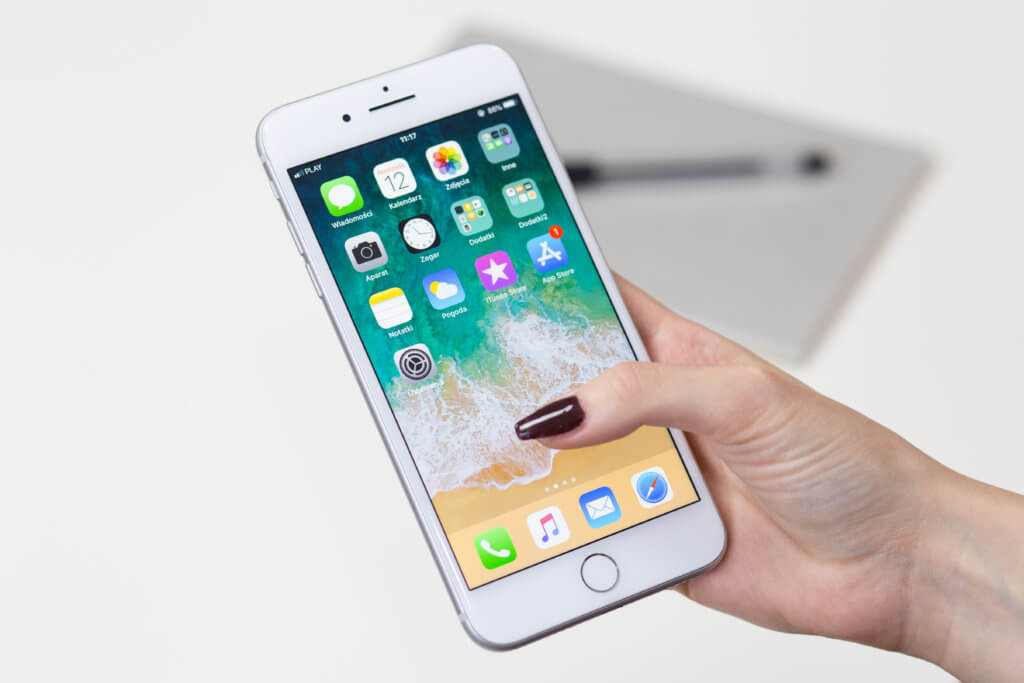
Simply key in your expenses in the local currency and it converts it to your “home” currency, whatever that may be. It also gives you statistics and works out your average daily spend.
You can also key in multiple trips, which is what I did for each country I visited in Asia. It breaks down exactly where your money is going, so you can see where most of my money is going.
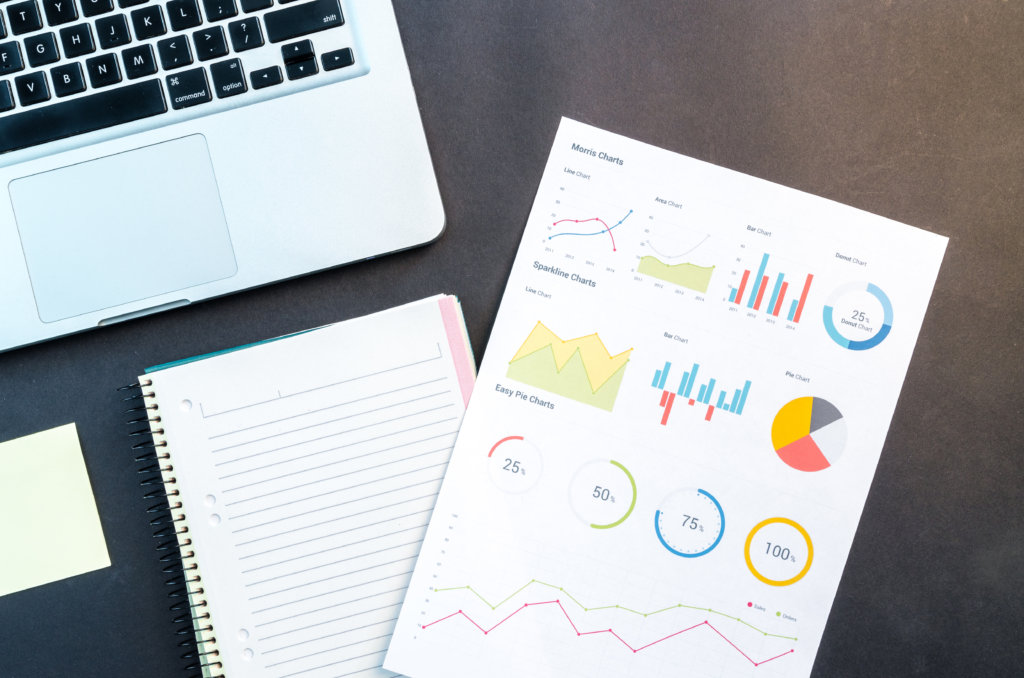
If I have a day where my expenses are close to, or even over my set limit, then I make sure the next few days I’m sleeping in a cheap dorm room, buying snacks from the supermarket and not doing too many paid activities. This helps bring the budget back down to the daily average I’ve set myself.
Currency Exchange App
Another App I use is XE Currency. You can load up to 10 different currencies into the app, although all currencies are available, just switch the ones you need in and out.
The beauty of this app is once the currencies are loaded in there it will work and convert for you even without a data connection. How good is that!

I always have a look at conversion rates for everything before I hand over any money. (Unless that is if I can do a quick calculation in my head) For budgeting purposes, it is an absolute must to know what you’re spending in your “home” currency. In my opinion.
Different Countries Require A Different Travel Budget
When I was preparing for my 3 month trip to the US, I knew it was going to be so much more expensive.
Also taking into account the Aussie Dollar to US Dollar exchange rate. I lost 30-40 cents in every dollar straight away…cue ugly crying face!
The Land of Roadside Motels
I wanted my daily travel budget to be between $50-$100 per day. But in reality, it was more like $100-$200 per day. There is no hostel culture in America like there is in Asia. If you do find one it’s super expensive. One night in an 8-bed dorm room in Philadelphia $103. A week in a 4-bed dorm in Downtown Los Angeles $650. Out of control expensive!

There are roadside motels everywhere, which can come as cheap as $50usd per night, which is still really expensive in comparison to Asia. But a fair deal in America. I just had to stop comparing and cringing every time I handed over my money.
What really struck me too, was the fact that some of the cheaper hostels in Asia provided more amenities, hospitality and were cleaner than some of the American motels I stayed in, yet I paid 100% more in America!
Understand the Region You are Visiting
I tried to be as realistic with my American travel budget, knowing some days would be blown out of the water when I visited NYC and LA for example.
I’m not an extravagant person who eats at fancy restaurants or shops, at all, while travelling, but knowing how expensive a city/country will be, before visiting, is important for a realistic budget setting.
It really comes down to knowing your style of travel, what you want to see and experience most and being disciplined. I’m not for a second saying go without anything YOU want. Just make sure you’ve taken it into account in your budget.
Credit Cards
Ahhh credit cards. You either love ’em or you hate ’em!
Whilst I like them, have them and use them, it’s important to not abuse them whilst travelling. You don’t want to be coming home with a huge credit card debt, especially if you don’t have a job secured to come back to.
I always pay them back before they are due and in FULL without fail. There is no point in going into debt to travel. Live and travel within your means.
If that means sandwiches and $5 dorms for a couple of days then do it. Don’t splash out on a villa and an expensive steak dinner.

I honestly only take mine as a backup for emergencies. I stick to cold hard savings, that I don’t have to pay back.
My advice would be to not include your credit card limit into your travel budget either.
Also, review your credit cards fees and charges for what you’re going to be stung with when you use it in a foreign country.
Currency Cards
I swear by my currency card. They are a great option for short and long term travel. But they’re not all created equal. So do your due diligence and do some research.

Before Asia, I did a lot of research because if you add up six months worth of currency conversion, ATM fees and international fees, that you would get on a standard bank card, it would’ve racked up pretty quick. I certainly wasn’t going to leave home without one.
I opted for a Choice comparison. Choice is a consumer advocacy group here in Australia, that allows you to compare products and services, so you can get the best and fairest deal for yourself.

Which is Best?
That’s something only you can decide based on your personal circumstances and what you think is best.
Based on the above comparison and the fact I would be travelling for six months I opted for the Qantas Currency Card. No loading fees. No currency conversion and no international usage fees.

Be careful though when you are in a foreign country as each bank has the right to charge you for using their ATM.
What I love most about my card is when I use it overseas I earn Qantas Frequent Flyer points. Win-win!
ATM Fees
So whilst your choice of card may not charge you an international ATM fee, the overseas bank will likely charge you.
In my experience, however, they all advise you what the fee is going to be in the local currency and ask for your permission to proceed before it charges your account.

If you feel it is too high simply cancel the transaction.
Everyday bank cards (not currency cards) are the worst performers in my opinion. So always opt for an actual currency card. You don’t want your money going to the banks when it could be going on your next meal or adventure.
Make More Money To Increase Your Travel Budget
Finally, if you want more money to spend, it would be remiss of me not to tell you to make more money! Sounds simple right!
Well, it is!
Read my post on different ways to earn more money here

Some of these you can even do whilst travelling to keep the money coming in whilst you’re living your best life on the road.
Let me know in the comments if this helps or if you have any questions.
Important to note also: Prior to having all this money in exchange for no job, I saved for every single one of my overseas trips using the techniques in this post and always stuck to my budget whilst travelling.
Disclaimer: All stock photos from Canva used

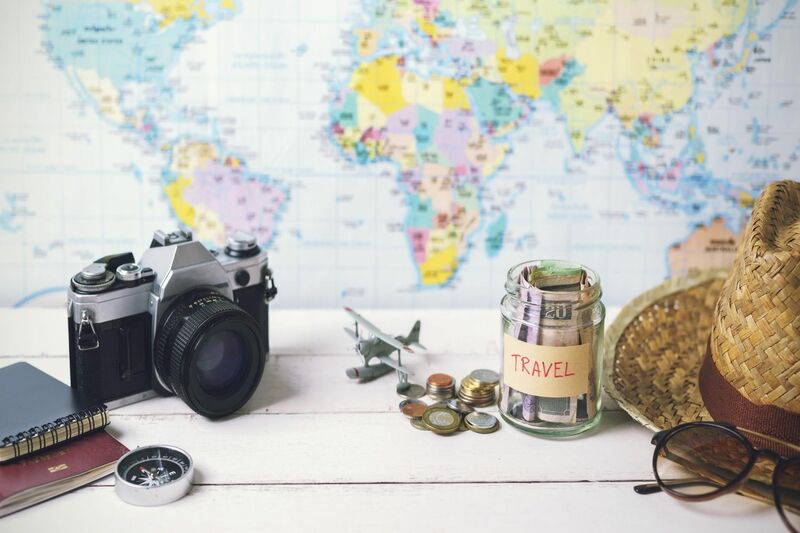







A well written informative piece.
All the things that are needed on a trip but are normally considered and dealt with at the point of happening. You have exposed the advantages of thinking about and taking decisions in a planning context well before the event.
And in doing so have quantified the advantages of this approach
I have enjoyed reading this blog.
Your tips on budgeting and financing are seriously fantastic! I’m at a place now where I’m starting to run out of travel funds and needing to reconsider my spending habits if I want to comfortably have enough money for India in September. I’m gonna take a serious (and probably uncomfortable) look at my budget/habits, thank you for inspiring me in this way!!
Thanks Emily. I’m glad it’s helped you. You should also check out my post about the Tips I swear by to save for travel.
it also has some advice in there about ways to cut back your spending, opening up some different accounts so you’re not tempted to spend and how to get serious about your expenses and saving properly for travel.
Thank you. You know me! Always the planner 🙂